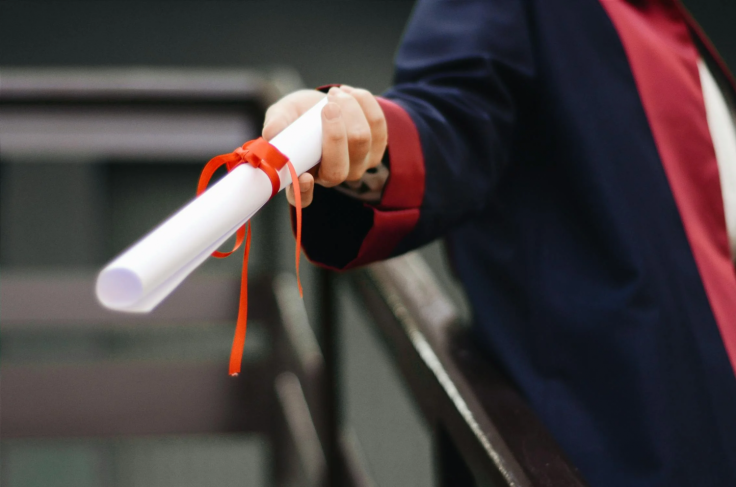Americans' Confidence in Higher Education Continues to Decline Amid Rising Concerns Over Political Bias and Cost [Poll]
ByThe confidence that Americans have in higher education has been eroding over the years. New data shows this continues to be the case, as concern grows about political agendas on campus and the value of a college degree.
A new Gallup poll commissioned by the Lumina Foundation shows that only 36% of American adults now hold considerable confidence in higher education-down from 57% in 2015.

Political Agendas and Ideological Wars
Cultural concerns, particularly the perception that higher education aims to indoctrinate students politically, are central to the erosion of confidence among many Americans. A large plurality, 41%, of those lacking faith in higher education point to political indoctrination. This is a red flag that also spotlights the widening perception gap between Democrats and Republicans: In 2015, 56% of Republicans held a great deal of confidence in higher education; nine years later, that number plunged to 20%.
As a result, an inflamed political atmosphere pervades college campuses, placing debate at the forefront of questions concerning academic freedom and the role that higher education should play in the development of broader social values. Disinvited controversial speakers, protest actions by students, and disciplined faculty for their political persuasions- all of these have helped enunciate the perception that many colleges are becoming increasingly partisan. But this isn't an imbalance that strikes Republicans alone. Confidence among independents has fallen from 48% to 35% since 2015 and from 68% down to 56% among Democrats.
The Cost Question
Another very influential factor in this decline is the ever-escalating cost of higher education: 28% of the respondents who had lost confidence pointed out the high cost. Surely, the potential financial burden of college education is extremely relevant in view of Americans owing over $1.6 trillion in student loans, and almost half of borrowers being in a struggle to resume payment.
For instance, Randy Hill, a Republican voter from Connecticut, reflects this sentiment: after college, heavy debt and job scarcity discourage students, leading some to pursue vocational training or apprenticeships. It's also driven by the cost factor, in addition to questions regarding how much of a return on investment one actually gets from a college degree.
Many Americans have begun to believe that colleges and universities are teaching neither relevant skills nor knowledge that would be utilized in the workforce of today.
Concerns of Higher Education Relevance
Concerns about the relevance of higher education are also driving confidence down. Many consider that institutions of higher learning are focused on the wrong things or simply do not teach the right things. The exact feeling is manifested in 37% of those with no trust in higher education.
More and more, people feel that higher education is not preparing students for the job market or adequately providing them with the skills they need to excel in a chosen career. "What's shocking to me is that the people who have low or no confidence is actually increasing," said Courtney Brown, vice president at Lumina, an education nonprofit. This has pushed additional students away from disillusionment with the educational curriculum and productions related to four-year colleges, instead heading toward two-year institutions believed to be more practical and cost-effective.
A recent poll says 49% of adults answered they have a great deal or quite a lot of confidence in two-year programs, but only 33% gave the same high rating to four-year colleges.
Implications and Potential Solutions
The consequences of shrinking confidence in higher education are deep. Fewer college graduates may exacerbate labor shortages in important industries like health care and information technology. For those who don't go to college, the personal economic costs are large: lifetime earnings are much lower than for peers who do earn bachelor's degrees. When times get tough, those without degrees are much more likely to lose their jobs.
Dealing with these challenges is going to require institutions of higher education to be more proactive. They have to be capable of demonstrating the value of college education in terms of the content and orientation of the curricula relevant to labor-market demands, focusing on the practical skills acquired. The rising options to finance it, along with making college more affordable, will increase its accessibility to students otherwise scared away by the prospect of high levels of student debt. Last but not least, academic freedom and openness of dialogue could help restore trust and reduce perceptions of politicization. Rebuilding confidence in higher education will have to be based on a multifaceted approach. Colleges and universities can regain the public's faith in them by showing that education remains relevant and will continue to hold an important place in shaping the future of the nation.
© 2025 University Herald, All rights reserved. Do not reproduce without permission.








